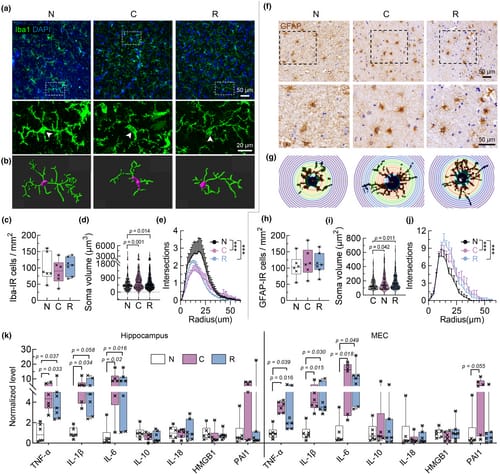By Xuetao Qi et al.
Source Wiley
新冠無病徵,腦退化湧現
Emerging signs of ALZHEIMER’S-LIKE PATHOLOGY in the BRAIN of INDIVIDUALS who had RECOVERED from COVID-19, even though no direct SARS-CoV-2 invasion was detected.
This study found signs of Alzheimer’s-like brain changes in people who had recovered from COVID-19, even though the virus was not directly detected in the brain regions examined. The researchers observed increased levels of a protein called tau that becomes abnormally twisted in Alzheimer’s disease. This suggests COVID-19 may raise the risk of developing Alzheimer’s later on. The study also found prolonged inflammation and activation of certain brain cells in the post-COVID-19 period.
Findings provide important clues about a potential link between COVID-19 and increased Alzheimer’s risk.
Abstract
Coronavirus disease 2019 (COVID-19) has been suggested to increase the risk of memory decline and Alzheimer’s disease (AD), the main cause of dementia in the elderly. However, direct evidence about whether COVID-19 induces AD-like neuropathological changes in the brain, especially post recovery from acute infection, is still lacking. Here, using postmortem human brain samples, we found abnormal accumulation of hyperphosphorylated tau protein in the hippocampus and medial entorhinal cortex within 4–13 months post clinically recovery from acute COVID-19, together with prolonged activation of glia cells and increases in inflammatory factors, even though no SARS-COV-2 invasion was detected in these regions. By contrast, COVID-19 did not change beta-amyloid deposition and hippocampal neuron number, and had limited effects on AD-related pathological phenotypes in olfactory circuits including olfactory bulb, anterior olfactory nucleus, olfactory tubercle, piriform cortex and lateral entorhinal cortex. These results provide neuropathological evidences linking COVID-19 with prognostic increase of risk for AD.
Read more click here

